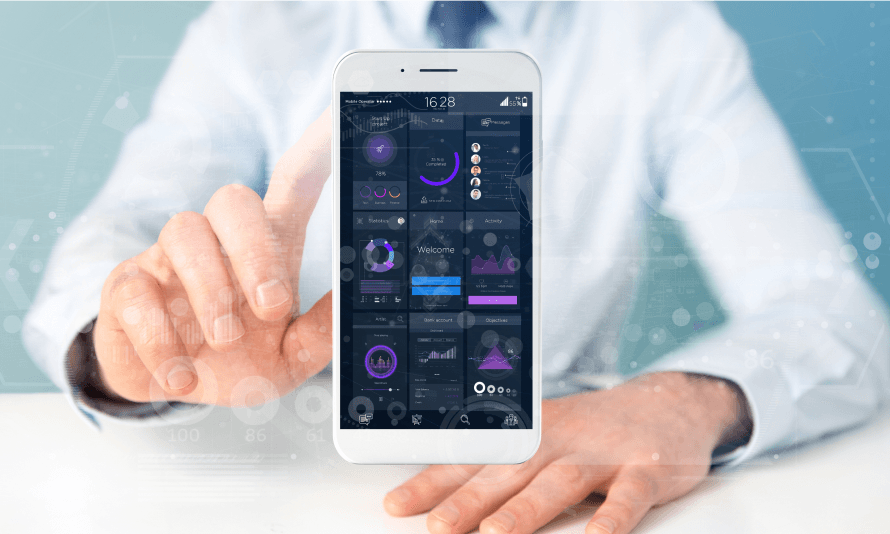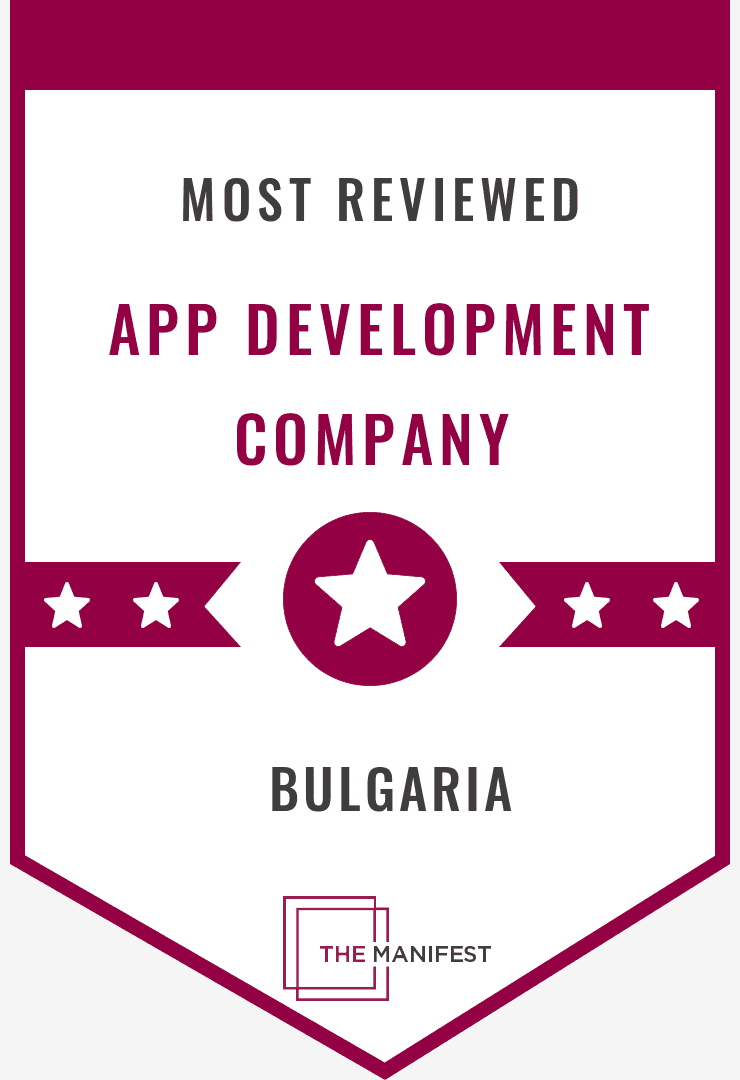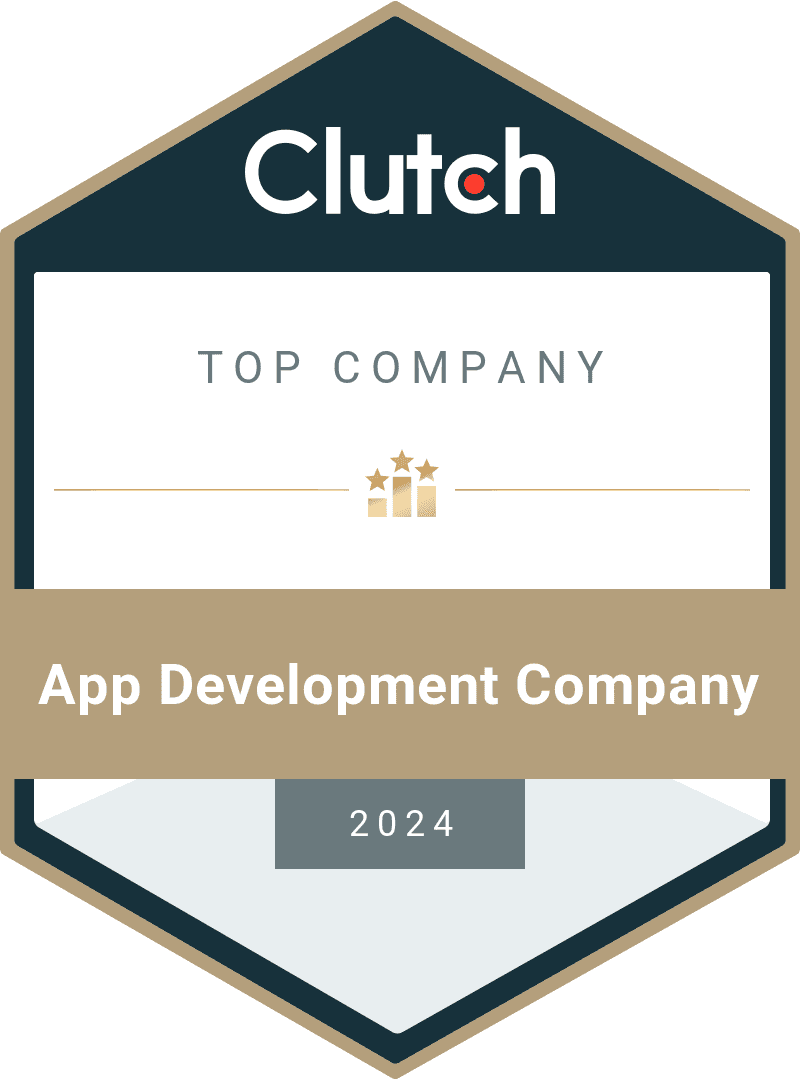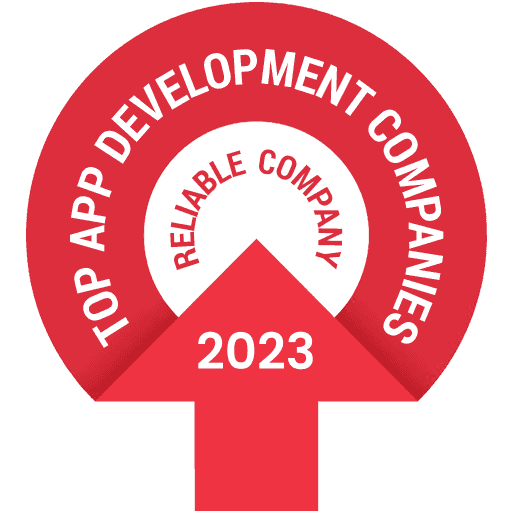In the dynamic landscape of mobile app development, a well-structured team is the cornerstone of success.
This article comprehensively overviews the optimal structure and critical roles within an efficient mobile app development team.
As the demand for innovative and user-centric apps escalates, understanding the intricacies of team organization becomes paramount.
With the ever-evolving technological advancements, the composition of a dedicated app development team plays a pivotal role in project success.
This article delves into the fundamental elements of an effective mobile app development team structure, shedding light on the indispensable parts of seamless app creation.
From developers and designers who breathe life into the app's interface to quality assurance experts who ensure glitch-free functionality, each role contributes to the holistic development process.
Stay tuned as we delve deeper into the nuances of app development team roles, such as UI/UX designers, frontend and backend developers, product managers, testers, and more.
By unraveling the layers of a successful mobile app development team, this article equips both novices and veterans with insights to build and sustain excellence in the competitive app development realm.
Mobile app development team structure and roles
A well-organized mobile app development team structure is crucial for delivering a successful and user-friendly app. Here's an in-depth look at the essential roles in app development team:

1. Product Manager:
The project's driving force is the product manager defining the app's vision, features, and functionality based on market research and user needs. They create a roadmap, prioritize tasks, and ensure the final product aligns with business goals.
2. UI/UX Designer:
Responsible for crafting an intuitive and visually appealing user interface, UI/UX designers focus on user experience. They create wireframes, prototypes, and design assets that enhance usability and engagement.
3. Frontend Developer:
Frontend developers translate designs into interactive interfaces using languages like HTML, CSS, and JavaScript. They ensure the app's visual elements are responsive across different devices.
4. Backend Developer:
Working behind the scenes, backend developers build the server, database, and APIs that enable app functionality. They handle data storage, security, and server-side logic.
5. Mobile App Developer:
Specializing in specific platforms like iOS or Android, mobile app developers implement the app's features and ensure its performance, adhering to platform-specific guidelines.
6. Quality Assurance (QA) Tester:
QA testers rigorously assess the app for bugs, usability issues, and performance glitches. They conduct various testing methods to ensure a smooth user experience.
7. DevOps Engineer:
DevOps engineers manage the app's deployment, continuous integration, and monitoring processes. They ensure the app runs reliably and efficiently in real-world conditions.
8. Project Manager:
Overseeing the entire development process, the project manager coordinates team efforts, monitors progress, and ensures timely delivery within budget.
9. Marketing Specialist:
Marketing specialists create strategies to promote the app, enhance its visibility, and drive user adoption. They work closely with the team to align marketing efforts with the app's features.
In conclusion, a well-structured mobile application development team comprises various roles, each contributing expertise crucial to the app's success.
Effective collaboration among these roles ensures a seamless development process, resulting in a high-quality app that meets user expectations and business objectives.
Product Owner
The Product Owner, a key player when you hire dedicated mobile app developers, plays a pivotal role in app creation.
Responsible for shaping the project's direction, they define project goals by collaborating with stakeholders and understanding user needs. They then distill these insights into a clear roadmap, guiding the application team.
Central to their role is prioritizing features. By analyzing user requirements and business value, the Product Owner creates a well-structured backlog.
This ensures the development team focuses on building features that deliver maximum impact.
Their continuous communication with stakeholders and the team helps maintain alignment, and their agile mindset enables them to adapt goals based on user feedback.
In essence, the Product Owner's decisions and insights are instrumental in crafting an app that resonates with users and fulfills strategic objectives.

Project manager
In the realm of app development, the Project Manager (PM) plays a crucial role as the linchpin that holds the entire process together.
Their significance lies in their ability to efficiently coordinate and oversee the multifaceted journey of creating a mobile app.
Coordination and Oversight:
App development teams are composed of diverse specialists, each with their own expertise. The PM takes on the responsibility of aligning these talents towards a common goal. They create a comprehensive project plan, allocate tasks, and monitor progress to
ensure that every facet of development remains on track.
Timely Delivery:
Meeting deadlines is paramount in app development, especially considering the rapidly changing market landscape. The PM meticulously sets achievable milestones and timelines, adjusting them as needed while monitoring the broader project goals. Their role involves anticipating challenges, mitigating risks, and ensuring the team adheres to the schedule.
Effective Communication:
A mobile app development team thrives on collaboration and communication. The PM is a central hub, facilitating open dialogues among team members, stakeholders, and clients. They ensure that information flows seamlessly, fostering a cohesive, well-informed and aligned environment.
In essence, when you hire dedicated app development teams, the Project Manager becomes the glue that holds everything together.
Their ability to manage resources, streamline processes, and maintain effective communication significantly contributes to the successful delivery of a mobile app that meets user expectations and business objectives.
Business Analyst
A Business Analyst plays a pivotal role in bridging the gap between clients and application development teams by comprehensively understanding client requirements and translating them into actionable tasks.
BAs serve as the communication linchpin, ensuring the project aligns with the client's objectives.
To start, BAs engage in extensive stakeholder consultations, interviews, and requirements gathering to understand the client's needs deeply. They meticulously document these requirements, ensuring clarity and precision.
Next, BAs utilize their analytical skills to dissect these requirements, identifying potential challenges and opportunities.
They perform feasibility studies, cost-benefit analyses, and risk assessments, helping the dedicated app development team make informed decisions.
This analytical prowess allows them to create detailed project plans and roadmaps, setting clear objectives and timelines.
Throughout the project lifecycle, BAs continue to monitor and analyze progress, making necessary adjustments to ensure alignment with the client's vision.
They act as liaisons, relaying feedback and facilitating communication between clients and development teams.
Ultimately, the contribution of BAs is integral to a project's success.
Their role in understanding client needs, meticulous planning, and ongoing analysis ensures that development teams have a clear direction, reducing rework and enhancing efficiency.
This collaborative approach fosters client satisfaction and drives project success in the competitive application development landscape.

UI/UX designer
A UI/UX designer is a vital component of a dedicated app development team, playing a crucial role in crafting an appealing and user-friendly app interface. Their contributions are pivotal for several reasons.
First and foremost, UI/UX designers are responsible for creating the visual aesthetics and layout of the app.
They ensure the design is visually pleasing, consistent with the brand, and aligned with user expectations. An attractive interface not only grabs users' attention but also keeps them engaged.
Moreover, UI/UX designers focus on enhancing the user experience (UX). They conduct user research, create user personas, and design intuitive user interfaces that facilitate smooth navigation.
By optimizing information architecture, interactions, and user flows, they make it easy for users to accomplish tasks, boosting overall satisfaction.
UI/UX designers also pay attention to accessibility, ensuring that the app is usable by a wide range of users, including those with disabilities.
This inclusive approach reflects positively on the app's reputation and user base.
In sum, the UI/UX designer's role is pivotal in creating an appealing, user-friendly interface that enhances the overall user experience and ensures seamless navigation within the app, ultimately contributing to the app's success within the app development team structure.
Mobile App Developers
Mobile app developers are integral members of a dedicated app development team and hold critical responsibilities in coding and implementing app features. Their roles encompass:
1.Feature Implementation: Developers translate design and functional requirements into code, bringing the app's features to life. They write, test, and debug code to ensure it functions correctly.
2.Functionality: Developers are responsible for ensuring the app's core functionality works seamlessly. They build and integrate various components, APIs, and databases to enable features like user authentication, data storage, and real-time interactions.
3.Technical Standards: Developers adhere to established coding standards and best practices to maintain code quality, readability, and scalability. They also optimize code for performance and security.
4.Testing and Debugging: Developers rigorously test the app to identify and rectify any issues or bugs. They collaborate with quality assurance testers to ensure a bug-free user experience.
5.Cross-Platform Compatibility: In some cases, developers work on making apps compatible with multiple platforms (e.g., iOS and Android) using technologies like React Native or Flutter.
In the app development team structure, developers complement other roles, such as designers and business analysts, to collectively bring the app to fruition.
Their expertise in coding and technical implementation is essential for creating a robust and functional mobile application that meets both user and technical standards.
Backend developers
Backend developers are essential app development team structure members, primarily responsible for constructing and maintaining the server-side infrastructure. Their role encompasses various critical aspects:
1.Data Storage: Backend developers manage databases, determining the optimal database systems (e.g., SQL, NoSQL) and designing schemas. They ensure efficient data storage, retrieval, and management, which is fundamental for app functionality and scalability.
2.Security: Backend developers implement security measures to safeguard user data and the application. They handle authentication, authorization, encryption, and protection against common vulnerabilities like SQL injection and cross-site scripting (XSS) to ensure data integrity and user privacy.
3.App Performance: Backend developers optimize server performance to ensure fast response times and scalability, especially during traffic spikes. They may employ caching mechanisms, load balancing, and database indexing to enhance app responsiveness.
4.Server-Side Logic: They build and maintain the core logic of the application, handling tasks such as user authentication, business logic execution, and data processing.
Overall, backend developers are crucial for building a robust, secure, and high-performing server-side infrastructure, ensuring that the application functions reliably and efficiently.

QA engineer
QA engineers are indispensable members of app development teams, responsible for meticulously testing and evaluating the application to detect and rectify bugs, errors, and usability issues. Their role is pivotal for several reasons:
1.Quality Assurance: QA engineers ensure the app meets high-quality standards by rigorously testing its functionality, performance, and compatibility across various devices and platforms. They help maintain the app's reliability and credibility.
2.User Experience: QA engineers are crucial in evaluating the app's user interface and usability. They identify user experience (UX) issues, usability flaws, and design inconsistencies, contributing to a smoother and more enjoyable user journey.
3.Bug Identification: They systematically test the app's features, functionalities, and integrations to uncover hidden bugs and errors. Their work helps developers address these issues before they impact end-users, ensuring a more stable and bug-free app.
4.Regression Testing: QA engineers perform regression testing to ensure that new updates or features do not introduce unforeseen issues or disrupt existing functionalities.
In sum, QA engineers are instrumental in upholding the overall quality and reliability of the app.
Their efforts contribute to a better user experience, reduced post-release bug fixing, and enhanced trust in the app among its users, making them an indispensable part of app development teams.
Where to find mobile application development experts
To hire app development team that is skilled, you can explore various sources and strategies to find the right experts for your project:
1.Job Portals: Websites like LinkedIn, Indeed, and Glassdoor are excellent platforms to post job listings and search for experienced app developers. You can specify your requirements and receive applications from qualified candidates.
2.Referrals: Seek recommendations from your professional network, colleagues, and industry contacts. Referrals often lead to highly skilled developers who come with trusted endorsements.
3.Freelance Platforms: Upwork, Freelancer, and Toptal offer access to a global pool of mobile app development professionals. You can review portfolios, assess reviews, and hire developers on a project-by-project basis.
4.Outsourcing Agencies: Consider partnering with outsourcing agencies specializing in app development. These agencies often have pre-vetted teams with diverse skill sets, making finding the right professionals for your project easier.
5.Tech Communities and Events: Attend tech meetups, conferences, and hackathons to connect with developers and app development enthusiasts. These events provide opportunities to meet potential team members and assess their expertise firsthand.
6.Social Media and Forums: Platforms like GitHub, Stack Overflow, and Reddit are tech discussions and collaboration hubs. You can engage with developers, ask for recommendations, and even post job listings.
7.Local Universities: Collaborate with local universities or technical colleges to find emerging talent or potential interns who can be nurtured into valuable team members.
When hiring a mobile app development team, evaluating candidates' skills, experience, and cultural fit with your project and organization is crucial. Consider conducting technical assessments, reviewing portfolios, and conducting interviews to ensure you're assembling a team of experts who can effectively meet your app development needs.
Models for hiring a Mobile App Development Team
When embarking on the journey to create a mobile application, one of the pivotal decisions is how to assemble your development team. There are two primary models to consider, each with its own advantages and challenges.
In this discussion, we'll delve into these two standard models for building a mobile app development team: the In-House Team Model and the Outsourcing Model.
By understanding the intricacies of each approach, you can make an informed choice that aligns with your project's goals, budget, and timeline.
In-House
Advantages of In-House Team:
1.Direct Control: In-house teams offer direct supervision and control over the development process, enabling real-time adjustments and efficient collaboration.
2.Cohesive Culture: Team members align with the company's values and vision, fostering a unified organizational culture in sync with business objectives.
3.Confidentiality: Sensitive data and intellectual property are more secure within the organization's environment.
Considerations:
1.Higher Costs: Building and maintaining in-house talent costs more than outsourcing.
2.Recruitment Challenges: Finding skilled professionals may be time-consuming, with stiff competition for top talent.
3.Resource Scalability: Adapting the team's size to project needs can be challenging, potentially leading to underutilization or overloading of resources. Careful planning and flexible strategies are essential when setting up an in-house team.

Outsourcing
Benefits of Outsourcing App Development:
1.Cost Efficiency: Outsourcing often reduces development costs, as you can access skilled talent in regions with lower labor expenses.
2.Quick Start: Outsourcing allows for faster project initiation, as you can tap into an existing mobile app development team's expertise.
3.Scalability: Outsourcing partners can quickly scale resources to meet project demands, ensuring flexibility.
Challenges:
1.Communication: Remote collaboration can pose communication challenges, impacting project understanding and progress tracking.
2.Quality Control: Ensuring quality and adherence to standards may require careful oversight and management.
Choosing a Reliable Partner:
Look for partners with a strong track record, relevant expertise, client references, and clear communication channels. Evaluate their portfolio and assess if they align with your project's goals and requirements when you outsource mobile app development team.
Outstaffing
Benefits of Outstaffing App Development:
1.Cost Savings: Outstaffing allows cost-effective access to skilled developers, reducing expenses compared to hiring in-house teams.
2.Flexible Scaling: Teams can be scaled up or down quickly to meet project demands, providing flexibility.
3.Specialized Talent: You can access specialized expertise and experience in different technologies and industries.
Challenges:
1.Coordination: Ensuring effective communication and collaboration across remote teams can be challenging.
2.Quality Control: Maintaining consistent quality and standards may require robust oversight and management.
Choosing a Reliable Partner:
Select an outstaffing partner with a strong reputation, a history of successful projects, a transparent contractual framework, and open communication channels.
Check client references and assess their alignment with your project needs and goals.
How much does it cost to build an app development team?
The cost of building a mobile app development team can vary significantly based on several factors:
1.Team Size: The size of your team directly affects costs. A small team with a few developers and a designer will cost less than a larger team with specialized roles like QA engineers, UX/UI designers, and project managers.
2.Location: The geographical location of your team members matters. Hiring in regions with higher living costs, such as Silicon Valley, will result in higher salaries and overall team expenses compared to areas with lower labor costs.
3.Experience and Expertise: Highly skilled and experienced professionals typically command higher salaries. The level of expertise required for your project can impact costs.
4.Project Complexity: The complexity of your mobile app project, including features, integrations, and technical requirements, will influence the time and resources needed, which in turn affects costs.
5.Timeframe: Rushed development schedules may require more resources and potentially lead to higher costs due to overtime or expedited hiring.
6.Technology Stack: The choice of technologies and tools can impact costs. Specialized technologies may require hiring experts, increasing expenses.
7.Outsourcing vs. In-House: Outsourcing or outstaffing can be cost-effective alternatives to building an entirely in-house team, reducing infrastructure and administrative overhead.
To estimate the app development team cost accurately, consider these factors and create a budget that aligns with your project's goals and resources.
Conclusion
In conclusion, building an effective mobile app development team is essential for successful app development.
We explored two primary models: in-house teams offering control and cultural alignment and outsourcing for cost-efficiency and scalability. Key considerations include team size, location, expertise, project complexity, and technology stack.
Regardless of the chosen model, a well-structured team with roles like developers, UI/UX designers, QA engineers, and project managers is crucial.
By carefully assessing the options and aligning them with your project's goals, you can assemble a team that not only meets your technical needs but also supports your app's overall success.
Choose wisely, as the right team is the foundation of a great app.
Relevant Articles:













































